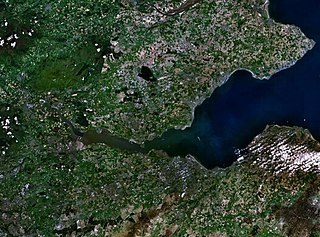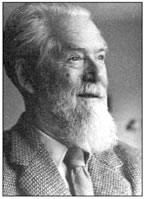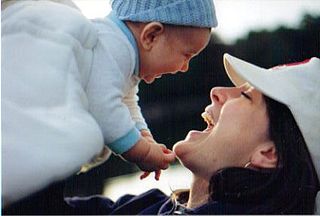Related Research Articles

Jacques Marie Émile Lacan was a French psychoanalyst and psychiatrist. Described as "the most controversial psycho-analyst since Freud", Lacan gave yearly seminars in Paris from 1953 to 1981, and published papers that were later collected in the book Écrits. His work made a significant impact on continental philosophy and cultural theory in areas such as post-structuralism, critical theory, feminist theory and film theory, as well as on the practice of psychoanalysis itself.

William Cullen FRS FRSE FRCPE FPSG was a Scottish physician, chemist and agriculturalist, and professor at the Edinburgh Medical School. Cullen was a central figure in the Scottish Enlightenment: He was David Hume's physician, and was friends with Joseph Black, Henry Home, Adam Ferguson, John Millar, and Adam Smith, among others.

Robert Henryson was a poet who flourished in Scotland in the period c. 1460–1500. Counted among the Scots makars, he lived in the royal burgh of Dunfermline and is a distinctive voice in the Northern Renaissance at a time when the culture was on a cusp between medieval and renaissance sensibilities. Little is known of his life, but evidence suggests that he was a teacher who had training in law and the humanities, that he had a connection with Dunfermline Abbey and that he may also have been associated for a period with Glasgow University. His poetry was composed in Middle Scots at a time when this was the state language. His writing consists mainly of narrative works. His surviving body of work amounts to almost 5000 lines.

Edwin George Morgan was a Scottish poet and translator associated with the Scottish Renaissance. He is widely recognised as one of the foremost Scottish poets of the 20th century. In 1999, Morgan was made the first Glasgow Poet Laureate. In 2004, he was named as the first Makar or National Poet for Scotland.

John MacMurray was a Scottish philosopher. His thought both moved beyond and was critical of the modern tradition, whether rationalist or empiricist. His thought may be classified as personalist, as his writings focused primarily on the nature of human beings. He viewed persons in terms of their relationality and agency, rather than the modern tendency to characterize them in terms of individualism and cognition.
Object relations theory in psychoanalytic psychology is the process of developing a psyche in relation to others in the childhood environment. It designates theories or aspects of theories that are concerned with the exploration of relationships between real and external people as well as internal images and the relations found in them. It maintains that the infant's relationship with the mother primarily determines the formation of its personality in adult life. Particularly, the need for attachment is the bedrock of the development of the self or the psychic organization that creates the sense of identity.
Sir Nicholas Hardwick Fairbairn, was a Scottish politician.

William Ronald Dodds Fairbairn FRSE was a Scottish psychiatrist, psychoanalyst and a central figure in the development of the Object Relations Theory of psychoanalysis. He usually used, and was known as and referred to as, "W. Ronald D. Fairbairn".

44 Scotland Street is an episodic novel by Alexander McCall Smith, the author of The No. 1 Ladies' Detective Agency. The story was first published as a serial in The Scotsman, starting 26 January 2004, every weekday, for six months. The book retains the 100+ short chapters of the original. It was partially influenced by Armistead Maupin's Tales of the City, a famous serial story. It is the first book in a series of the same name. The series now has 15 books, as of 2021.
Splitting is the failure in a person's thinking to bring together the dichotomy of both perceived positive and negative qualities of something into a cohesive, realistic whole. It is a common defense mechanism wherein the individual tends to think in extremes. This kind of dichotomous interpretation is contrasted by an acknowledgement of certain nuances known as "shades of gray".

Edith Jacobson was a German psychoanalyst. Her major contributions to psychoanalytic thinking dealt with the development of the sense of identity and self-esteem and with an understanding of depression and psychosis. She was able to integrate the tripartite structural model of classic psychoanalysis with the theory of object relations into a revised drive theory. Thereby, she increased the treatment possibilities of the more disturbed pre-oedipal patients.
Love and hate as co-existing forces have been thoroughly explored within the literature of psychoanalysis, building on awareness of their co-existence in Western culture reaching back to the “odi et amo” of Catullus, and Plato's Symposium.

Maternal deprivation is a scientific term summarising the early work of psychiatrist and psychoanalyst John Bowlby on the effects of separating infants and young children from their mother. Although the effect of loss of the mother on the developing child had been considered earlier by Freud and other theorists, Bowlby's work on delinquent and affectionless children and the effects of hospital and institutional care led to his being commissioned to write the World Health Organization's report on the mental health of homeless children in post-war Europe whilst he was head of the Department for Children and Parents at the Tavistock Clinic in London after World War II. The result was the monograph Maternal Care and Mental Health published in 1951, which sets out the maternal deprivation hypothesis.

A matriarchal religion is a religion that focuses on a goddess or goddesses. The term is most often used to refer to theories of prehistoric matriarchal religions that were proposed by scholars such as Johann Jakob Bachofen, Jane Ellen Harrison, and Marija Gimbutas, and later popularized by second-wave feminism. In the 20th century, a movement to revive these practices resulted in the Goddess movement.

Humza Haroon Yousaf is a Scottish politician serving as Cabinet Secretary for Health and Social Care since 2021. He is the first non-white and first Muslim cabinet minister in the Scottish Government. A member of the Scottish National Party (SNP), he has been the Member of the Scottish Parliament (MSP) for Glasgow Pollok since 2016, having previously represented Glasgow region from 2011 to 2016.
John Derg Sutherland, also known as Jock Sutherland, was a Scottish physician, psychoanalyst and theorist, notable also for his role as Medical Director of the Tavistock Clinic.
The Scottish Institute of Human Relations (SIHR) was an organisation founded in Edinburgh, Scotland, in 1972, to promote a broader understanding of mental health and training in Talking therapies. Its origins go back to the practice of Dr W.R.D. Fairbairn, the Scottish psychoanalyst, and the return to Scotland in 1968 of Dr J. D. Sutherland, one-time medical director of the Tavistock Clinic in London. Other founding contributors included T. Drummond Hunter, a senior NHS administrator, the educationalist Alan Harrow, the philanthropist Sheila Oppenheim, the Kirk minister and son-in-law of Lord Reith, Murray Leishman, and the psychiatrist, Dr J. Douglas Haldane.
(Johnston) Douglas Haldane MBE, FRCPsych was a pioneering Scottish child psychiatrist, who established Great Britain's first department of Child and Family Psychiatry in 1960 in Cupar in Fife. He opened the first family in-patient treatment unit in Scotland and introduced a range of innovative therapeutic art interventions. He sat on numerous policy working parties and led a variety of professional committees. He became a founding member of the Association for Family Therapy. He was a co-founder of the Scottish Institute of Human Relations. During his time as an academic, he devoted much time to influence the development of a government policy on Marriage. In the 1960s, he was also an elder of the Church of Scotland and a member of an early Iona Community group.
George David Henderson was a Scottish historian and a minister of the Church of Scotland.

William Binnie was a presbyterian minister. He was Professor of Systematic Theology to the Reformed Presbytery Synod as well as being their minister in Stirling. On the breach in the Reformed Presbytery he joined the Majority Synod. In 1875 he was appointed to the Church History chair at the Free Church College in Aberdeen. He was an author publishing works on the Psalms and on the church.
References
- ↑ David Cooper, The Death of the Family (1974) p. 18
- ↑ M. Hoffman, Toward Mutual Recognition (Routledge 2014)
- ↑ David Mann, Love and Hate (2013) p. 13-4
- ↑ R. Weatherall ed., The Death Drive (1999) p. 128
- ↑ G. S. Clarke et al eds., Fairbairn and the Object Relations Tradition (2014) p. 72
- ↑ P. Cook, Mothering Denied (2008) p. 26
- ↑ Celia Harding, Sexuality (2001) p. 65-6